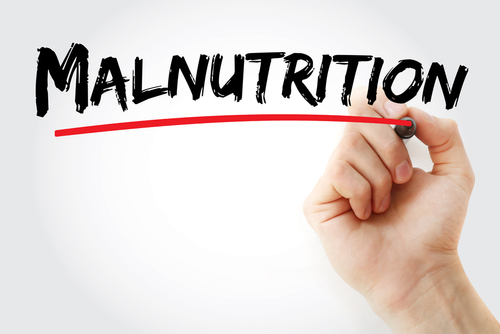As functional medicine doctors with years of experience, we often find ourselves standing at the crossroads of diet, exercise, and general well-being. In our journey, one fact has become abundantly clear: weight gain isn’t always a simple consequence of overeating or lack of exercise. Rather, it’s a complex puzzle involving numerous variables, with one surprising piece being nutrient deficiencies. We’re not talking about muscle weight or water weight, but actual fat weight gain. Drawing from our extensive practice, we want to share insights on how these deficiencies can affect weight management and overall health.
We hope this exploration not only broadens your understanding but also equips you with effective, actionable strategies to optimize your well-being. So, let’s delve into the fascinating world of nutrients and their intricate dance with our health.
What vitamin deficiency causes overweight?

- Iodine, selenium, and zinc: Falling short on these crucial elements can disrupt the normal functioning of your thyroid gland. An underperforming thyroid often translates into a sluggish metabolism, which sets the stage for weight gain.
- B Vitamins: A deficiency in B vitamins, especially vitamin B12, can drain your energy reserves and dampen metabolic activity, making the task of weight management more daunting.
What is the role of mitochondria in metabolism?
Ever wondered about the driving force behind our body’s metabolism? Meet the mitochondria, tiny yet potent organelles residing in our cells. Often referred to as the “power generators” or the “energy storehouses” of our cells, they hold the key to metabolic activity and fat burning.
Acting as our cellular power plants, mitochondria transform the food we eat and the oxygen we breathe into a form of energy known as adenosine triphosphate (ATP). This ATP is the lifeblood of every cell in our body, powering everything from our muscles and brains to our hearts, eyes, and reproductive systems.
However, not all mitochondria are created equal. While some individuals boast a thriving community of highly functional mitochondria, others may have fewer, less efficient ones. This variability plays a significant role in our body’s overall metabolism and energy production.
Mitochondrial-supporting nutrients
One of the most well-understood nutrients in terms of weight management is l-carnitine. L-carnitine is an amino acid that transports fatty acids from the foods we eat into the mitochondria, where they can be oxidized or burned. Think of l-carnitine as a ferry that shuttles fats across a sea within the cell to an island – the mitochondria – where energy factories burn fat to create ATP energy.
Among the other nutrients essential for optimal mitochondrial function are CoQ10, B vitamins, magnesium, alpha lipoic acid, and n-acetyl-cysteine. It’s common for people to take supplements for these, but they can also be found in food.
How nutritional deficiency affects our physical health?
It’s important to note that nutrient deficiencies can have a broader impact on your overall health than just weight gain. For instance, they can impair your immune system, disrupt tissue growth and repair, and affect your mood and cognitive function. Therefore, addressing these deficiencies is important not just for weight management, but also for your overall well-being.
Mitochondria: The energy powerhouse that needs nourishing
Considering mitochondria’s central role in generating energy, we often emphasize their importance. To maintain your health and metabolic processes, you must nourish your mitochondria. This also means eating a balanced diet is the best weapon you can use.
L-Carnitine: The weight management aid
L-carnitine, an amino acid, plays a vital role in weight management. By ferrying fats into the mitochondria, l-carnitine aids in the fat-burning process and energy production. This nutrient becomes particularly important for those who aim to manage their weight effectively.
 Supplements vs. Natural Food Sources
Supplements vs. Natural Food Sources
Despite the fact that supplements can provide concentrated doses of these essential nutrients, it’s also important to incorporate them into your diet through natural foods. In addition to high-quality animal proteins, organ meat, plant foods, leafy greens, onions, and garlic, these nutrients can also be found in plenty in plant foods. A well-balanced, nutrient-dense diet supports your weight management efforts, nourishes your mitochondria, and optimizes your metabolism.
Get in touch with top functional medicine doctors near you
Transform your diet into a powerful tool for wellness through an infusion of essential nutrients. You don’t want to restrict your diet, but rather replenish and revitalize your body with the nutrients it needs.
So, take that step forward, and reach out to us at 562-789-1588 to schedule your initial consultation, either online or in person, depending on your preference. As a final note, never forget: health is a continuous journey, not a destination. We hope to work together to achieve a healthier, happier you.

 Supplements vs. Natural Food Sources
Supplements vs. Natural Food Sources